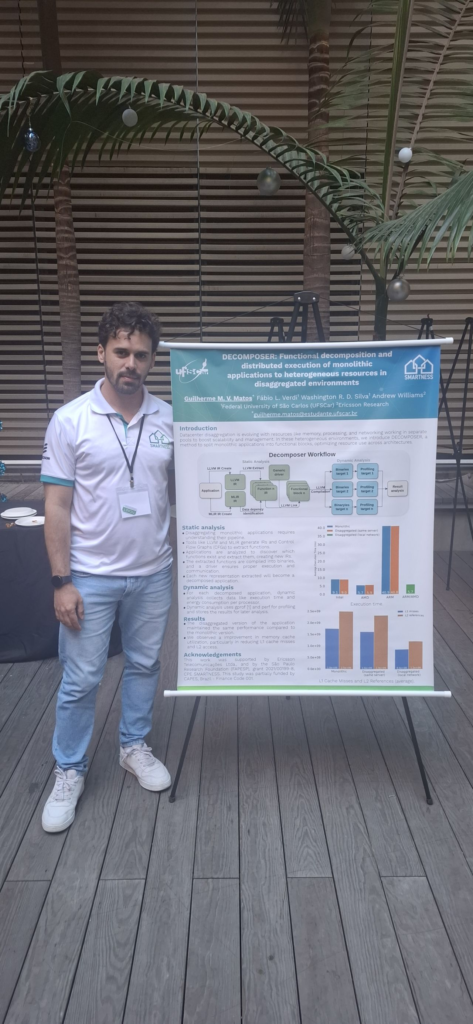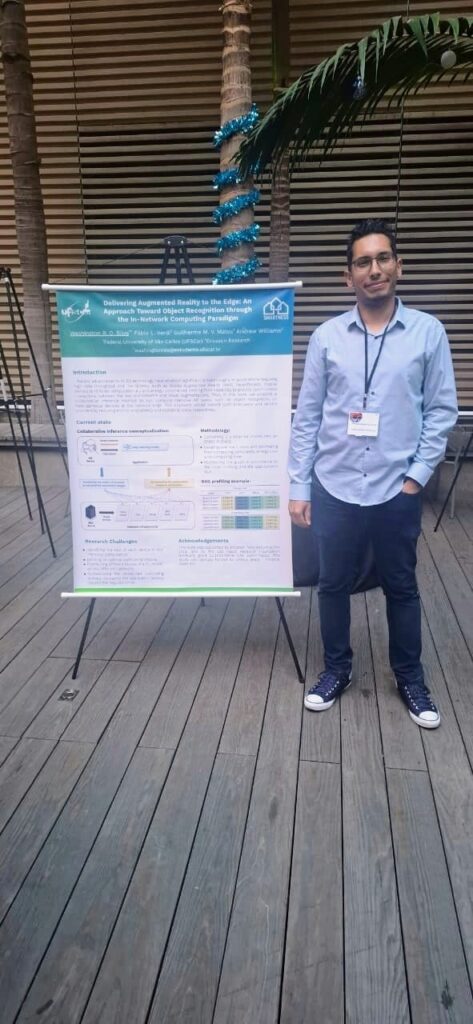From December 9th to 12th, researchers from LERIS took part in the ACM CoNEXT 2024, a premier international conference on emerging networking technologies, held this year at UCLA, in Los Angeles. Representing the laboratory, PhD students Guilherme Matos and Washington Silva participated actively in the event, presenting their research during both the Student Workshop and the Main Track poster session.
Guilherme Matos presented his work entitled “DECOMPOSER: Functional Decomposition of Monolithic Applications to Heterogeneous Resources in Disaggregated Environments”, which explores novel strategies for offloading application components to diverse hardware in disaggregated datacenter environments.
Washington Sousa showcased the paper “Delivering Augmented Reality to the Edge: An Approach Toward Object Recognition through the In-Network Computing Paradigm”, addressing how edge computing and programmable networks can support AR applications with low latency and energy efficiency.
Both papers were selected for oral presentation at the Student Workshop and later featured in the poster session during the main conference, offering visibility and fostering discussions with leading researchers in the field.
The participation in CoNEXT 2024 reinforces LERIS’s commitment to high-impact research and its growing presence in top-tier international venues. The conference provided a valuable opportunity for knowledge exchange, collaboration, and exposure to cutting-edge advancements in networking and distributed systems.
We congratulate our researchers for their outstanding contributions and for representing LERIS on the global stage.




